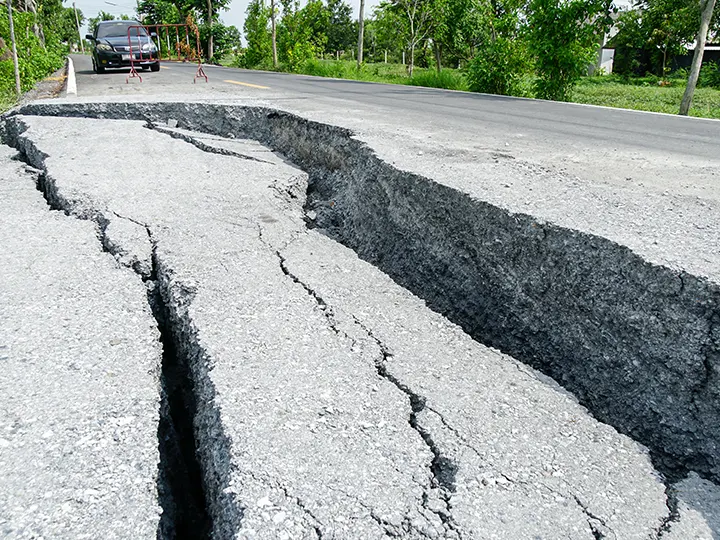
Catastrophic 7.8-magnitude earthquake strikes southern Turkey, resulting in over 500 fatalities.
A 7.8 magnitude earthquake, one of the strongest in Turkey in over a century, rocks the region causing destruction and fatalities. Over 500 casualties reported across two countries.
The quake, with a depth of 24.1 km (14.9 miles), struck early Monday morning local time near Nurdagi, Gaziantep province along the Turkey-Syria border, as per the USGS. The earthquake was felt in multiple countries including Syria and Lebanon.
In Turkey, 284 fatalities and over 2,300 injuries have been reported, as stated by Vice President Fuat Oktay. In Syria, 237 fatalities and over 630 injuries have been reported by the Syrian state news agency SANA, citing a Ministry of Health official, with casualties reported in cities including Aleppo, Latakia, Hama, and Tartus.
It felt like it would never be over
Journalists recounts intense experience during earthquake in Gaziantep.
Journalist, who was staying with his parents, recalls the quake feeling like it would never end. Upon the cessation of shaking, Journalist and his parents emerged from their home in pajamas to face several inches of snow and rain. They waited outside for 30 minutes before returning to grab coats and boots.
Southern and central Turkey experiences strong aftershocks. The strongest, a 6.7 magnitude aftershock, occurred 11 minutes after the main quake and was located 32 km (20 miles) northwest of its epicenter. Another intense aftershock with magnitude 5.6 hit 19 minutes after the main quake.
According to Journalist, the 7.8 magnitude earthquake that struck the region resulted in up to eight intense aftershocks in less than a minute. This caused objects in his home to fall, and many of his neighbors decided to evacuate. As day breaks in Turkey, images depicting the devastating impact of the quake are emerging, with entire buildings flattened and metal rods scattered throughout the streets. The ongoing winter storm in the area is only adding to the disaster, affecting not only the roads, but also the food supply, childcare, and family well-being. Meteorologists warns that the consequences of this tragedy will have a far-reaching impact on the region for weeks, and possibly even months, affecting crops and other vegetation as well. The situation is dire for the hundreds of thousands of people affected by this disaster.
Searching for survivors
Search and rescue operations have been initiated by the Turkish government in response to a devastating earthquake that struck the south of the country. Interior Minister Suleyman Soylu confirmed that teams have been dispatched, while the disaster agency, AFAD, has requested international support through the European Union’s Emergency Response Coordination Centre (ERCC).
Nearly 1,000 volunteers, accompanied by dogs, trucks, and aid supplies, have been deployed from Istanbul to the affected areas. The governor of Gaziantep, Davut Gul, advised the public to remain calm and stay outside their homes while rescue workers search for survivors. The earthquake was felt in many parts of Turkey, including Gaziantep, which has a sizable refugee population and a mix of small- and medium-sized cities with varying economic backgrounds.
Turkish President Recep Tayyip Erdogan expressed his concern and confirmed that all relevant units are on alert and working in coordination with AFAD. The White House National Security Adviser Jake Sullivan offered support and condolences, stating that the US stands ready to provide any necessary assistance.
In light of the earthquake, messages of condolences and support have been pouring in from world leaders, expressing their sympathies for those affected. The destruction in both Syria and Turkey has elicited profound concern, with the situation being closely monitored by the international community. The earthquake has prompted a swift response from the Turkish government and various aid agencies, as rescue efforts continue in the affected areas. The Turkish president and the US National Security Adviser have assured the public of their commitment to providing all necessary assistance in these challenging times. As the earthquake has left a significant impact, the world waits in anticipation for updates on the rescue and relief operations underway.
As the rescue and relief efforts continue, it is important for everyone to remain calm and follow the guidelines provided by the authorities. Staying outside homes and avoiding crowded areas and main roads can help minimize potential dangers and allow rescue teams to effectively carry out their duties. The use of social media can also play a crucial role in disseminating information and keeping the public updated on the situation. In these difficult times, it is important to come together and support one another, providing help and assistance wherever possible. The outpouring of support from world leaders and the international community has been heartwarming, and it is a testament to the strength of humanity in the face of adversity.